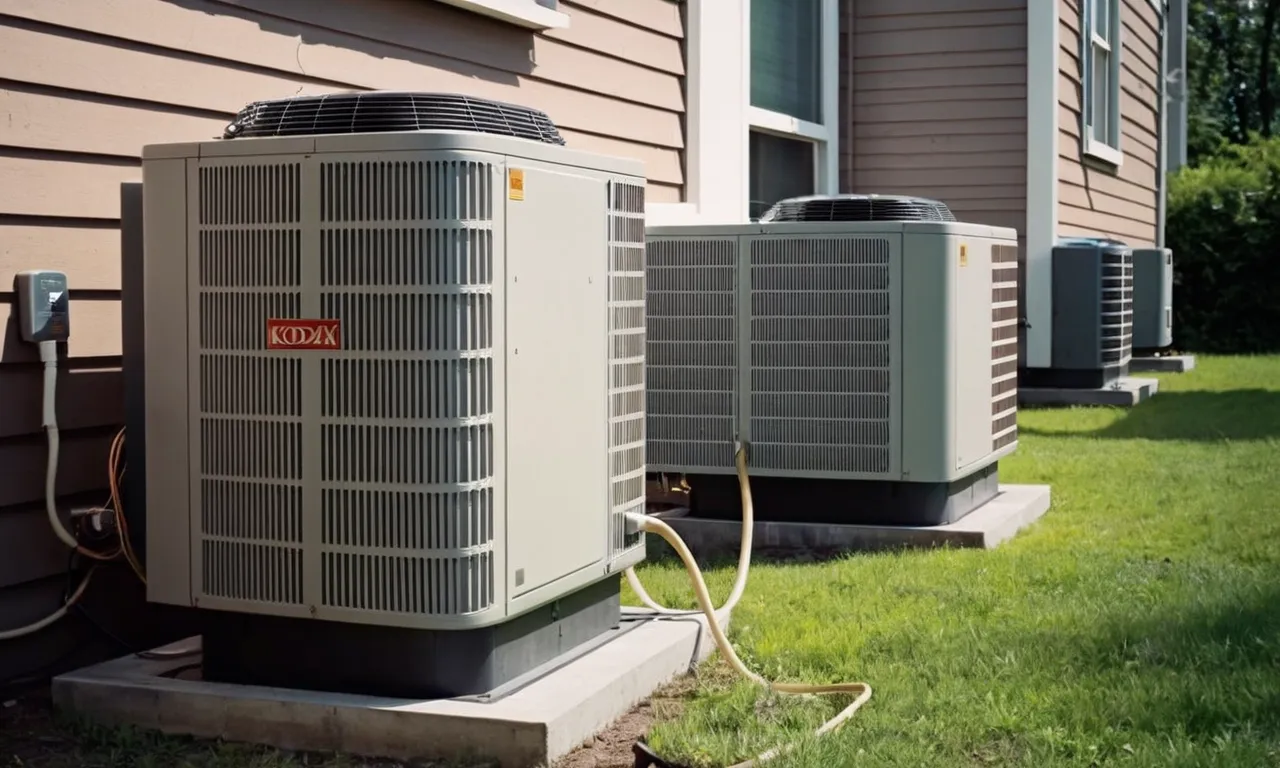Which Utility Cost Is Typically Greatest For Hotels?
In the hospitality industry, managing operational costs is crucial for maintaining profitability and ensuring guest satisfaction. Among the various expenses hotels incur, utility costs can be a significant burden, with some utilities contributing more to the overall expenditure than others.
If you’re short on time, here’s a quick answer to your question: Energy costs, particularly electricity and heating/cooling, are typically the greatest utility expense for hotels.
In this comprehensive article, we’ll delve into the different utility costs associated with hotel operations, explore the factors that influence these expenses, and provide insights into strategies for optimizing utility consumption and reducing costs.
We’ll also examine the impact of utility costs on the overall financial performance of hotels and discuss sustainable practices that can help mitigate these expenses.
Understanding Hotel Utility Costs
Running a hotel is no easy feat, and one of the biggest challenges hoteliers face is managing utility costs. From keeping the lights on and rooms comfortable to ensuring guests have access to hot water and high-speed internet, these expenses can quickly add up.
But which utility cost typically takes the biggest bite out of a hotel’s budget? Let’s dive in and explore the different components.
Energy Costs (Electricity and Heating/Cooling)
Energy costs, encompassing both electricity and heating/cooling, often take the lion’s share of a hotel’s utility expenses. According to a study by the US Department of Energy, energy use in hotels can account for up to 60-70% of their utility bills.
This significant portion is attributed to the constant demand for lighting, powering electronics, and maintaining comfortable temperatures for guests around the clock.
- Electricity: Lighting, appliances, electronics, and HVAC systems are major electricity consumers in hotels.
- Heating/Cooling: Keeping guest rooms, common areas, and amenities at optimal temperatures requires substantial energy for heating and cooling, especially in extreme climates.
Water and Sewage Costs
Another substantial utility cost for hotels is water and sewage. Guests expect hot showers, clean linens, and well-maintained facilities, all of which require a significant amount of water. Additionally, hotels often have on-site laundry facilities, kitchens, and swimming pools that further contribute to water usage.
According to EPA WaterSense, hotels can use 15% more water per overnight stay than a typical household. 😮 Proper water management and conservation measures are crucial to keep these costs in check.
Telecommunications and Internet Costs
In today’s digital age, reliable telecommunications and high-speed internet are essential amenities for hotels. Guests expect seamless connectivity for work, entertainment, and communication purposes. Hotels often invest in robust infrastructure and services to meet these demands, which can be a significant recurring cost.
Additionally, the need for secure and reliable phone systems for guest services and operations adds to these expenses.
Waste Management Costs
Finally, waste management is another utility cost that hotels must consider. With a constant influx of guests and high consumption of goods, hotels generate substantial amounts of waste, including paper, plastic, food, and other materials.
Proper waste disposal and recycling services are not only environmentally responsible but can also be a financial burden if not managed efficiently. Many hotels have implemented sustainability initiatives to reduce waste and associated costs, such as composting programs and single-use plastic reduction efforts.
While the specific breakdown of utility costs may vary depending on factors like location, size, and operational practices, energy costs (electricity and heating/cooling) typically represent the greatest portion of a hotel’s utility expenses.
However, it’s crucial for hoteliers to adopt comprehensive strategies that address all aspects of utility management to ensure efficient operations and a positive guest experience while minimizing their environmental impact and bottom line.
Factors Influencing Hotel Utility Costs
Hotel Size and Occupancy Rates
The size of a hotel and its occupancy rates play a significant role in determining utility costs. Larger hotels with more rooms and amenities generally consume more energy and water, leading to higher utility bills. However, occupancy rates can also impact costs.
During peak seasons or events when occupancy is high, hotels consume more resources to meet guest demands for heating, cooling, lighting, and hot water usage. On the other hand, during off-peak periods with lower occupancy, utility costs may be lower due to reduced demand.
According to a study by the American Hotel & Lodging Association, energy costs can account for as much as 60-70% of a hotel’s utility expenses, with lighting and HVAC systems being the biggest energy consumers.
Geographic Location and Climate
A hotel’s geographic location and the surrounding climate significantly influence its utility costs. Hotels in regions with extreme temperatures, whether hot or cold, tend to have higher energy costs for heating and cooling systems.
For instance, hotels in tropical or desert areas may require extensive air conditioning, while those in colder climates may need substantial heating during winter months. Additionally, hotels in coastal areas may face higher water costs due to desalination or water scarcity.
According to the U.S. Energy Information Administration, hotels in the South and West regions of the United States typically have higher energy expenditures compared to other regions due to the warmer climate.
Building Age and Efficiency
The age of a hotel’s building and its overall energy efficiency can greatly impact utility costs. Older buildings may lack modern insulation, energy-efficient windows, and updated HVAC systems, leading to higher energy consumption and costs.
On the other hand, newer hotels or those that have undergone renovations with energy-efficient upgrades can significantly reduce utility expenses. The U.S. Green Building Council reports that LEED-certified hotels can save up to 30% on energy and water costs compared to conventional buildings.
Implementing energy-efficient practices, such as LED lighting, smart thermostats, and water-saving fixtures, can also contribute to lower utility costs.
Guest Amenities and Services
The range of amenities and services offered by a hotel can significantly impact its utility costs. Hotels with extensive amenities like swimming pools, spas, fitness centers, and restaurants tend to have higher energy and water consumption, leading to increased utility expenses.
Additionally, hotels that offer laundry services, 24-hour room service, and other guest conveniences may also see higher utility costs due to the resources required to maintain these operations. According to a study by the Hotel Energy Solutions project, laundry operations can account for up to 16% of a hotel’s total energy consumption, while restaurants and kitchens can consume up to 30% of a hotel’s energy usage.
😮
Strategies for Optimizing Utility Consumption and Reducing Costs
As energy prices continue to soar, hotels are facing mounting pressure to implement strategies that optimize utility consumption and reduce operational costs. By embracing energy-efficient practices and technologies, hotels can not only cut down on their utility bills but also enhance their environmental sustainability and attract eco-conscious guests.
Let’s explore some effective strategies:
Energy-Efficient Building Design and Retrofits
The foundation of utility optimization lies in the building itself. Incorporating energy-efficient design elements during construction or retrofitting existing structures can yield significant savings.
Key considerations include insulation, double-glazed windows, LED lighting, and efficient HVAC systems. According to the ENERGY STAR program, hotels that have earned their certification use an average of 35% less energy and generate 35% fewer greenhouse gas emissions than their peers.
Implementing Sustainable Practices
Beyond building design, hotels can adopt sustainable practices that reduce resource consumption. Encouraging guests to reuse towels and linens, installing low-flow showerheads and faucets, and implementing effective waste management programs can significantly impact utility costs and environmental footprint.
A study by Green Hotelier found that hotels implementing comprehensive sustainability programs can reduce energy consumption by up to 20% and water consumption by up to 30%.
Leveraging Technology and Automation
Technology and automation play a pivotal role in optimizing utility consumption. Smart thermostats, occupancy sensors, and automated lighting controls can ensure that energy is only used when and where it’s needed.
Additionally, energy management systems and real-time monitoring tools provide valuable insights into consumption patterns, enabling hotels to identify areas for improvement and make data-driven decisions.
According to a report by McKinsey & Company, hotels that leverage digital technologies can reduce energy costs by up to 25%.
Staff Training and Guest Engagement
While technology and infrastructure play a crucial role, human behavior is equally important. Providing comprehensive training to staff on energy-saving practices and engaging guests in sustainability initiatives can have a significant impact.
Hotels can encourage guests to participate in initiatives like towel and linen reuse programs, turning off lights and electronics when not in use, and properly disposing of waste. A study by Green Key Global revealed that hotels with robust guest engagement programs can reduce energy consumption by up to 15%.
By implementing a combination of these strategies, hotels can not only reduce their utility costs but also contribute to a more sustainable future for the hospitality industry. It’s a win-win situation for both the bottom line and the environment. 😊🌱💰
The Impact of Utility Costs on Hotel Financial Performance
Profitability and Competitiveness
Operating a hotel is a resource-intensive endeavor, and utility costs represent a significant portion of a hotel’s overall expenses. According to a study by ENERGY STAR, utility costs can account for up to 6% of a hotel’s total operating costs, making it one of the largest controllable expenses.
This figure can vary significantly based on factors such as the hotel’s size, location, and age of the building. Effective management of utility costs is crucial for maintaining profitability and competitiveness in the hospitality industry.
Hotels that fail to implement energy-efficient practices and technologies risk falling behind their competitors who prioritize sustainability. As consumers become increasingly environmentally conscious, they are more likely to choose accommodations that align with their values.
A survey by Booking.com revealed that 73% of travelers consider sustainable travel an important factor when booking accommodations. By reducing utility costs through energy-efficient measures, hotels can reinvest the savings into enhancing guest experiences, upgrading facilities, or offering competitive rates, ultimately improving their bottom line and attracting eco-conscious guests.
🌳💰
Sustainability and Environmental Responsibility
Beyond financial considerations, managing utility costs is inextricably linked to a hotel’s commitment to sustainability and environmental responsibility. The hospitality industry has a significant carbon footprint, and reducing energy consumption is a crucial step towards mitigating its environmental impact.
According to EPA data, hotels in the United States generate approximately 2.5 million tons of waste annually, with a significant portion attributed to energy consumption.
By implementing energy-efficient practices and technologies, such as LED lighting, smart thermostats, and renewable energy sources, hotels can significantly reduce their carbon footprint and contribute to a more sustainable future.
This not only aligns with corporate social responsibility goals but also resonates with environmentally conscious guests who seek accommodations that prioritize sustainability. Hotels that embrace sustainable practices can differentiate themselves in the market and potentially attract a loyal customer base that values environmental stewardship. 🌱🌍
Guest Satisfaction and Retention
Utility costs can also have a direct impact on guest satisfaction and retention. Guests expect a comfortable and enjoyable stay, and inefficient energy management can lead to suboptimal room temperatures, inadequate lighting, and other issues that detract from the overall experience.
By optimizing energy usage through smart building automation systems and efficient equipment, hotels can ensure consistent and comfortable conditions for guests, enhancing their satisfaction levels.
Furthermore, many hotels now offer eco-friendly amenities and programs, such as towel and linen reuse options, to encourage guest participation in sustainability efforts. These initiatives not only reduce utility costs but also cater to environmentally conscious guests who appreciate the opportunity to contribute to a hotel’s sustainability goals.
By aligning their energy management strategies with guest preferences, hotels can foster a sense of loyalty and increase the likelihood of repeat business. 😊👏
| Area of Impact | Importance |
|---|---|
| Profitability and Competitiveness | Utility costs can account for up to 6% of a hotel’s total operating costs, making effective management crucial for maintaining profitability and competitiveness. |
| Sustainability and Environmental Responsibility | Reducing energy consumption is a key step towards mitigating the hospitality industry’s significant carbon footprint and aligning with corporate social responsibility goals. |
| Guest Satisfaction and Retention | Optimizing energy usage ensures consistent and comfortable conditions for guests, enhancing their satisfaction levels and increasing the likelihood of repeat business. |
Conclusion
In the hotel industry, managing utility costs is a critical aspect of operational efficiency and financial sustainability. While energy costs, particularly electricity and heating/cooling, typically represent the greatest utility expense, other utilities such as water, telecommunications, and waste management also contribute significantly to overall costs.
By understanding the factors influencing utility consumption, implementing strategies for optimization, and embracing sustainable practices, hotels can not only reduce their operational expenses but also enhance their environmental responsibility and guest satisfaction.
Striking the right balance between cost-effectiveness and guest comfort is key to maintaining a competitive edge in the hospitality industry.
As the demand for sustainable and eco-friendly practices continues to grow, hotels that prioritize utility cost management and adopt innovative solutions will be better positioned to thrive in an increasingly competitive and environmentally conscious market.
By proactively addressing utility costs, hotels can ensure long-term profitability, attract environmentally conscious guests, and contribute to a more sustainable future for the industry.







